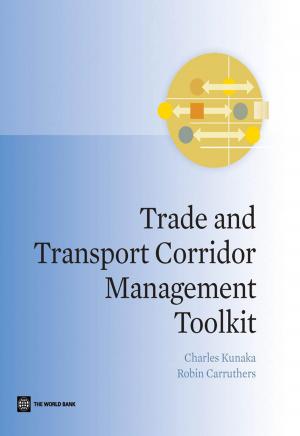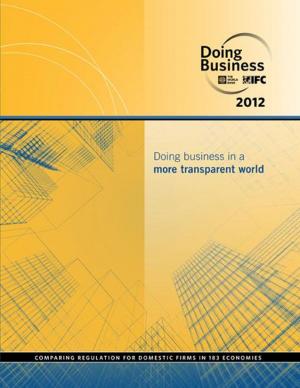East Asia Pacific at Work
Employment, Enterprise, and Well-being
Business & Finance, Career Planning & Job Hunting, Labor, Economics, Economic Development| Author: | World Bank | ISBN: | 9781464800054 |
| Publisher: | World Bank Publications | Publication: | May 7, 2014 |
| Imprint: | Language: | English |
| Author: | World Bank |
| ISBN: | 9781464800054 |
| Publisher: | World Bank Publications |
| Publication: | May 7, 2014 |
| Imprint: | |
| Language: | English |
The unprecedented progress of East Asia Pacific is a triumph of working people. Countries that were low-income a generation ago successfully integrated into the global value chain, exploiting their labor-cost advantage. In 1990, the region held about a third of the world’s labor force. Leveraging this comparative advantage, the share of global GDP of emerging economies in East Asia Pacific grew from 7 percent in 1992 to 17 percent in 2011. Yet, the region now finds itself at a critical juncture. Work and its contribution to growth and well-being can no longer be taken for granted. The challenges range from high youth inactivity and rising inequality to binding skills shortages. A key underlying issue is economic informality, which constrains innovation and productivity, limits the tax base, and increases household vulnerability to shocks. Informality is both a consequence of stringent labor regulations and limited enforcement capacity. In several countries, de jure employment regulations are more stringent than in many parts of Europe. Even labor regulations set at reasonable levels but poorly implemented can aggravate the market failures they were designed to overcome. This report argues that the appropriate policy responses are to ensure macroeconomic stability, and in particular, a regulatory framework that encourages small- and medium-sized enterprises where most people in the region work. Mainly agrarian countries should focus on raising agricultural productivity. In urbanizing countries, good urban planning becomes critical. Pacific island countries will need to provide youth with human capital needed to succeed abroad as migrant workers. And, across the region, it is critical to ‘formalize’ more work, to increase the coverage of essential social protection, and to sustain productivity. To this end, policies should encourage mobility of labor and human capital, and not favor some forms of employment - for instance, full-time wage employment in manufacturing - over others, either implicitly or explicitly. Policies to increase growth and well-being from employment should instead reflect and support the dynamism and diversity of work forms across the region.
The unprecedented progress of East Asia Pacific is a triumph of working people. Countries that were low-income a generation ago successfully integrated into the global value chain, exploiting their labor-cost advantage. In 1990, the region held about a third of the world’s labor force. Leveraging this comparative advantage, the share of global GDP of emerging economies in East Asia Pacific grew from 7 percent in 1992 to 17 percent in 2011. Yet, the region now finds itself at a critical juncture. Work and its contribution to growth and well-being can no longer be taken for granted. The challenges range from high youth inactivity and rising inequality to binding skills shortages. A key underlying issue is economic informality, which constrains innovation and productivity, limits the tax base, and increases household vulnerability to shocks. Informality is both a consequence of stringent labor regulations and limited enforcement capacity. In several countries, de jure employment regulations are more stringent than in many parts of Europe. Even labor regulations set at reasonable levels but poorly implemented can aggravate the market failures they were designed to overcome. This report argues that the appropriate policy responses are to ensure macroeconomic stability, and in particular, a regulatory framework that encourages small- and medium-sized enterprises where most people in the region work. Mainly agrarian countries should focus on raising agricultural productivity. In urbanizing countries, good urban planning becomes critical. Pacific island countries will need to provide youth with human capital needed to succeed abroad as migrant workers. And, across the region, it is critical to ‘formalize’ more work, to increase the coverage of essential social protection, and to sustain productivity. To this end, policies should encourage mobility of labor and human capital, and not favor some forms of employment - for instance, full-time wage employment in manufacturing - over others, either implicitly or explicitly. Policies to increase growth and well-being from employment should instead reflect and support the dynamism and diversity of work forms across the region.















